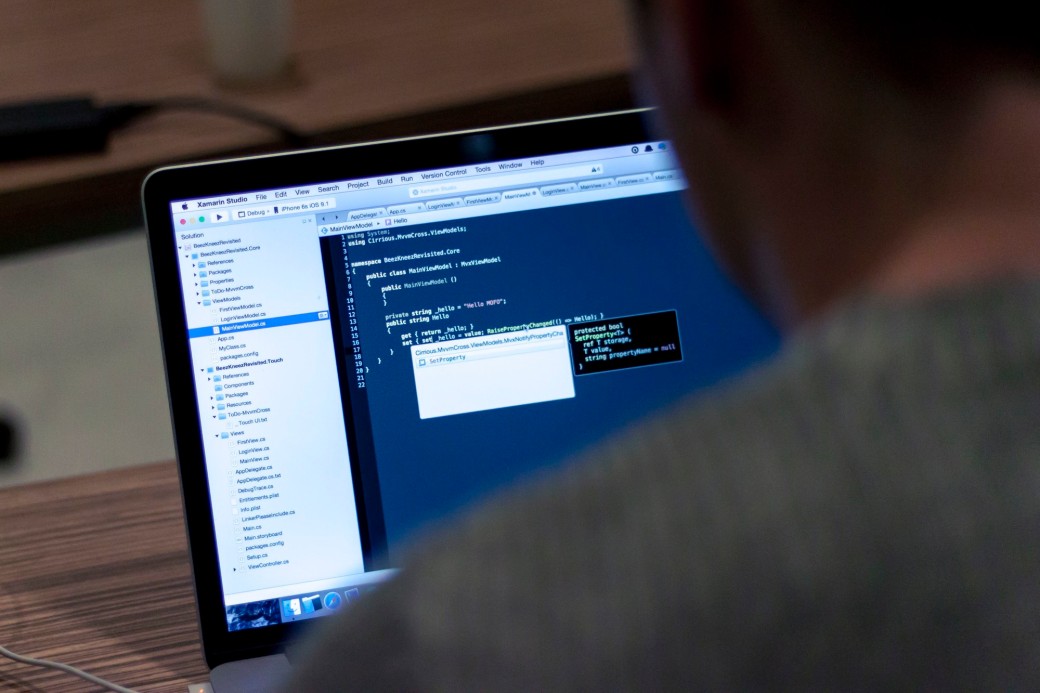
Photo Credit: Tirza van Dijk via Unsplash.com
Recently the government of British Columbia introduced new plans that would introduce coding to school curricula, from Kindergarten to Grade 12.
The new coding curriculum will be introduced across all grades over three years, featuring new standards in mathematics and sciences and a new ‘applied design, skills and technologies’ (ADST) component to improve students’ abilities to solve problems and think creatively.
Back when I was in school (a time when they were still working the bugs out of ‘the wheel’ and Donald Trump’s hair was its original colour: green) the only coding we knew about was the secret language you used to write messages back and forth to your friends. Such was our prowess at cryptography, the codebreakers at Bletchley Park would have had a devil of a time deciphering our pithy correspondences, such as: “Dave is a idiot. Pass it on.” But… I digress.
There are a couple of points to be made here I think. First of all, this is an obvious attempt to address a direct shortage of technology workers in Canada, especially in light of the collapse of the oil industry. Many (myself included) see this as a bit of a desperation move, trying to make up for years of obsessing over oil and gas, a non-sustainable, and as we’ve seen, entirely unstable source of economic growth.
Secondly, there will be those will decry this initiative as another example of the diminishing of the Humanities in favour of yet more STEM (Science, Technology, Engineering and Mathematics)-related subjects. I admit, I’ve always been of the opinion that promoting STEM subjects at the cost of the Arts and Humanities is an egregious mistake that has lead to many of our greatest social problems, possibly even Nickelback. Both areas should be taught with equal weight, as it requires both the technical knowledge of the STEM subjects AND the wisdom and creativity of the Humanities to be a truly prosperous and valuable member of a modern society.
Indeed, one could argue (convincingly I believe) that this STEM-bias (and the arrogance that invariably goes with it) has led to our current financial situation.
In any event, I think this move by the B.C. government, whatever its motives, is a good thing overall. I’m not for a moment suggesting that all kids should be software developers, nor indeed will many of them want to be. However coding, and the logic and thought process that goes into technology has become, for better or worse, a fundamental skill that must be possessed in order to succeed in this society. It’s becoming a kind of 21st century literacy, as critical to daily life as the ability to read, write, or count.
“Hang on a minute,” I hear you cry in what looks suspiciously like italics. “What about those children who want to be writers, filmmakers, artists, psychologists and the like. Why do they need to learn how to code? Surely such training would be wasted on them.”
Not necessarily. Many of the social issues we run into today are born from ignorance. Consider this somewhat simplistic example. If you understood how your car worked – the mechanics, the electronics, etc. – getting it repaired would be a far less scary proposition (and possibly less costly). I’m not suggesting that we all need to be mechanics, any more than everyone needs to be a computer programmer, but understanding the basic principles behind the objects and devices we use every day is empowering. The fact that many of us still stare at our mobile phones with an expression of “Oooo… magic talking light box!” is worrying in the extreme. Especially when the device is, in fact, off.
Ignorance, and it’s far more lethal cousin willful ignorance, leads to problems far beyond not knowing how your car works and getting ripped off on a repair you didn’t need. Ignorance is a breeding ground for fear, which is the perfect environment for hate to spring.
It may seem like a stretch to connect all these things – coding in schools, ignorance of technology, fear-based hate – but they are connected by a single idea: the lack of knowledge.
It’s impossible to make intelligent, informed decisions about our world without knowledge. Whether that be an understanding of the technologies we create, or the people we interact with each day, many of the decisions we now make are based on very little real knowledge. Take a good look around at some of our biggest social problems and it’s easy to see how knowledge (and its dance partner understanding) could possibly have alleviated or at least lessened the damage done.
If our schools truly are the training ground for the next generation, then we need to do a better job of arming them with the knowledge and understanding they’ll need to make better decisions. Who knows? They might even be able to fix some of the messes we’ve made.
A new curricula that includes coding is something that we really support. Our school required us to take a computer science class freshman year and it completely changed our lives. Without exposure to coding, we would’ve never even thought to explore the field, and now both of us are thinking of even majoring in a CS-related field!
LikeLike